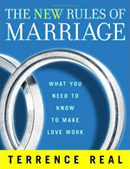A frequent challenge among many couples arises when one is feeling very low, in a depressed or negative state that inevitably affects the other partner. The “feeling low” partner may feel a great need to share his/her intense emotions or to have them recognized and validated. The other partner may be worn down by the negativity; unable to identify (and commiserate) with the other’s intense emotions; or possibly resentful of what feels like unfair blame and criticism.
The Porcupine Dilemma

Some years back, I visited the Freud Museum in London, once the final home of Sigmund Freud, the founder of psychoanalysis, and his daughter Anna Freud, a pioneering child psychoanalyst. (The Freud family had come to England as refugees, following the Nazi annexation of Austria in March 1938.)
On Freud’s desk in his study stood a metal figure of a porcupine with quills, a figure he apparently kept there all the time. Why a porcupine?
Why We Misunderstand (N. Epley)

Why is it so hard to understand our partners? Why do they continue to astound us with their feelings, reactions and desires, even decades down the road? Why is understanding so elusive?
In his 2014 book Mindwise, writer, scientist and (University of Chicago) behavioral psychologist Nicholas Epley explores the ways in which we routinely make inferences about what others think, believe, feel, or want, and in so doing, routinely misunderstand them.
“But I Apologized!!?” (E. Bader)
 Master therapist (and co-founder of the Couples Institute) Ellyn Bader notes that several myths can render an apology meaningless and even useless. After debunking these myths, she offers a path for repair that is more effective than a glib or quick apology.
Master therapist (and co-founder of the Couples Institute) Ellyn Bader notes that several myths can render an apology meaningless and even useless. After debunking these myths, she offers a path for repair that is more effective than a glib or quick apology.
7 Verbs . . . Better Loving (E. Perel)
 Relationship and sex therapist Esther Perel notes that, much as one must be able to conjugate certain core verbs in order to speak a language, one must similarly practice seven basic relational verbs to sustain a satisfying friendship or relationship. In the bedroom, practicing these verbs becomes even more significant.
Relationship and sex therapist Esther Perel notes that, much as one must be able to conjugate certain core verbs in order to speak a language, one must similarly practice seven basic relational verbs to sustain a satisfying friendship or relationship. In the bedroom, practicing these verbs becomes even more significant.
Making Love Work (T. Real)
 In his 2008 book, The New Rules of Marriage: What You Need to Know to Make Love Work, Terrence Real, distinguished therapist and bestselling author, draws upon his experience working with thousands of couples to teach frustrated partners how to get their mates to show up (and grow up!).
In his 2008 book, The New Rules of Marriage: What You Need to Know to Make Love Work, Terrence Real, distinguished therapist and bestselling author, draws upon his experience working with thousands of couples to teach frustrated partners how to get their mates to show up (and grow up!).
Key to Success: Trust Yourself (Diane von Furstenberg)
 In New York Times column Corner Office (05.03.15), Adam Bryant talks with top executives about the challenges of leading and managing. In an interview with fashion designer Diane von Furstenberg, a central theme running through many of her responses is the notion of trusting oneself.
In New York Times column Corner Office (05.03.15), Adam Bryant talks with top executives about the challenges of leading and managing. In an interview with fashion designer Diane von Furstenberg, a central theme running through many of her responses is the notion of trusting oneself.
I loved her definition of what it means to be relationship with oneself. The following are edited selections of her words.
100-Year-Old Marriage Advice (R.M. Rilke)
 In 1902, the famous Bohemian-Austrian poet Rainer Maria Rilke began a letter correspondence with a 19-year-old aspiring poet and military cadet named Franz Kappus who was trying to decide between a literary and a military career. In his letters, Rilke offers advice on how a poet should feel, love, and seek truth in trying to understand and experience life and art. In 1929, three years after Rilke’s death, the ten letters were published as Briefe an einen jungen Dichter (Letters to a Young Poet).
In 1902, the famous Bohemian-Austrian poet Rainer Maria Rilke began a letter correspondence with a 19-year-old aspiring poet and military cadet named Franz Kappus who was trying to decide between a literary and a military career. In his letters, Rilke offers advice on how a poet should feel, love, and seek truth in trying to understand and experience life and art. In 1929, three years after Rilke’s death, the ten letters were published as Briefe an einen jungen Dichter (Letters to a Young Poet).
